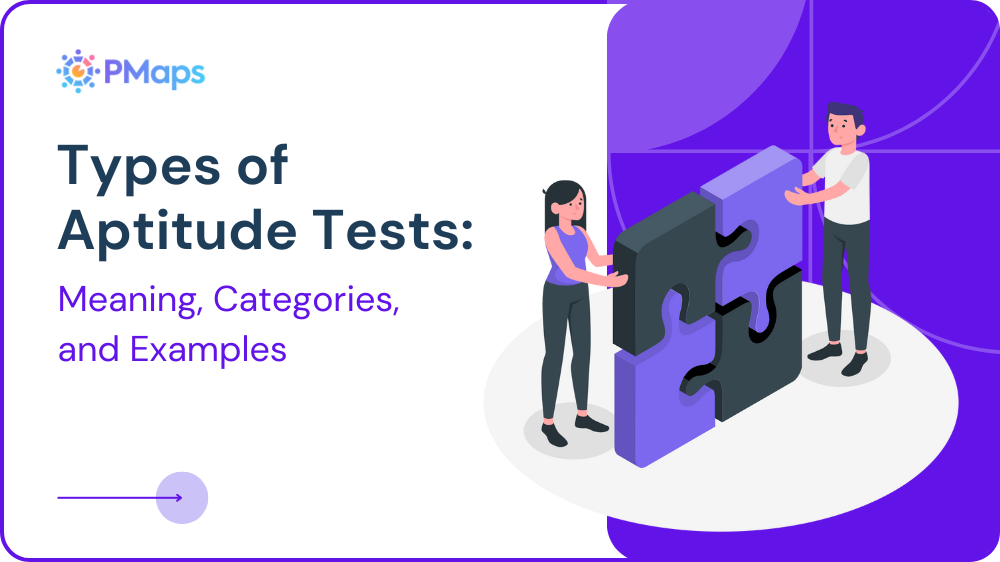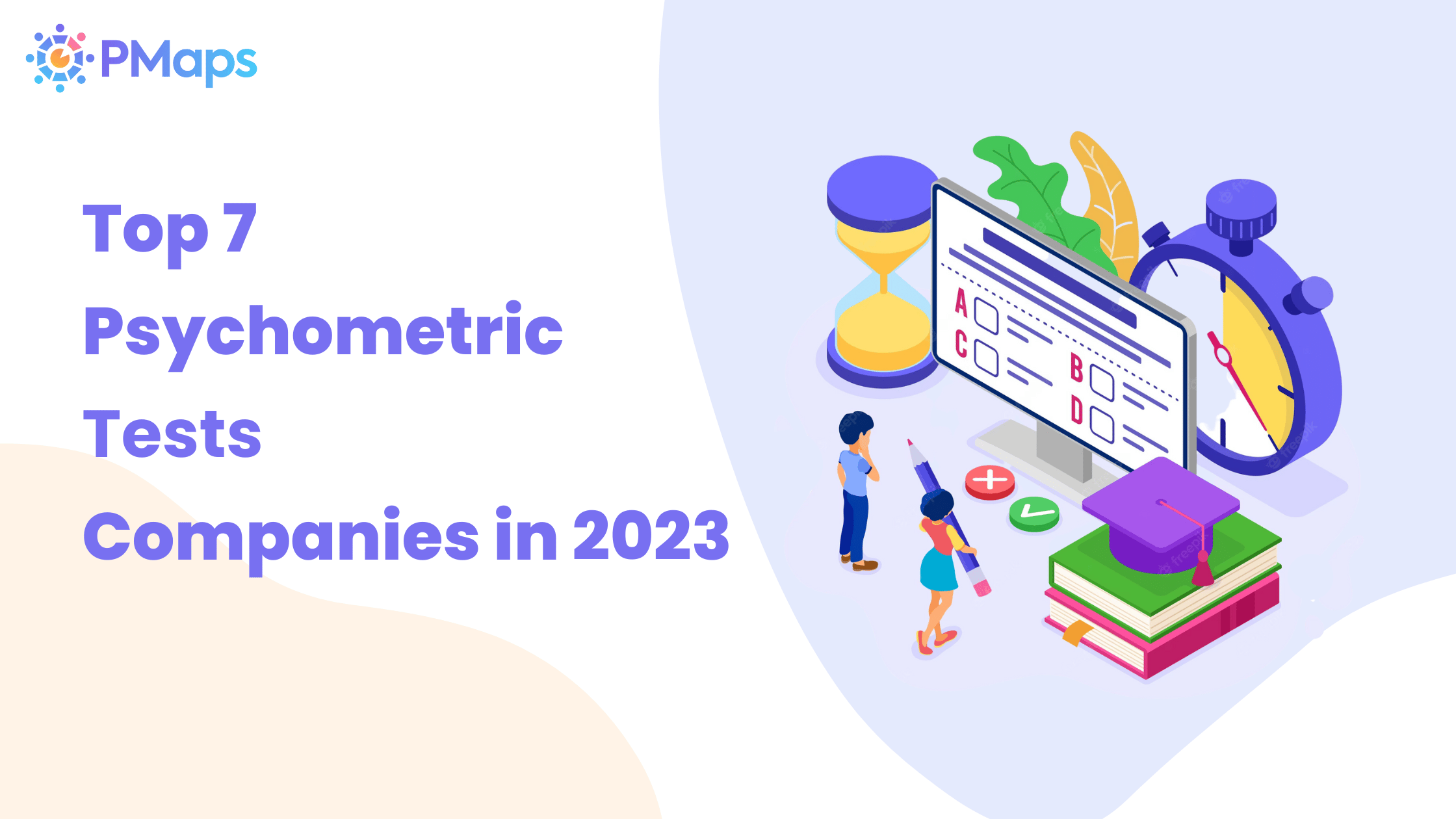
What is aptitude test is a question HR leaders, educators, and job seekers often ask. In simple terms, aptitude tests measure a person’s natural ability to learn, adapt, and apply skills in specific areas. Unlike academic exams, they do not test knowledge; they evaluatteste potential.
Aptitude assessments are widely used in hiring, promotions, and career counseling because they reveal strengths and areas for improvement. Knowing what aptitude test means helps organizations make informed decisions about candidates, while also guiding individuals to better understand their own capabilities.
This article explains what is aptitude assessment, outlines the main aptitude test categories, and gives practical aptitude examples. It also covers how aptitude tests are applied in workplaces, what benefits they offer, and tips for preparing effectively.
What Is an Aptitude Test?
An aptitude test is a structured aptitude assessment designed to evaluate how well a person can perform certain tasks or respond to challenges. It reflects problem-solving ability, reasoning skills, and adaptability rather than memorized knowledge.
What are aptitudes examples? Common ones include numerical reasoning, verbal reasoning, spatial awareness, and logical thinking. Each reflects a specific strength that organizations or educators may want to measure.
In HR, aptitude tests serve as predictors of success by aligning natural ability with job requirements. They are also applied in education, where they guide students in choosing career paths. In both settings, the purpose of an aptitude test is to match potential with opportunity.
Classification of Aptitude Tests
Aptitude tests come in many forms, each designed to measure different abilities. Understanding these aptitude test categories helps HR leaders, educators, and candidates know what to expect and how results can be applied. Below are the most recognized classifications of aptitude assessments.
Numerical Reasoning Tests
These measure a candidate’s ability to interpret numbers, data sets, and basic calculations. As one of the most common different types of aptitude tests, numerical reasoning is essential in roles involving finance, data analysis, and technical problem-solving.
Verbal Reasoning Tests
These evaluate how well a person understands written information, logic, and arguments. Verbal reasoning tests are a staple across many aptitude test categories, especially where communication and comprehension are critical for success.
Abstract and Logical Reasoning Tests
Abstract reasoning measures pattern recognition and problem-solving beyond language or numbers. Logical reasoning evaluates structured thinking and deduction. Together, they represent different kinds of aptitude test tools, helping organizations gauge adaptability and innovation potential.
Spatial Reasoning Tests
Spatial tests measure the ability to visualize and manipulate objects in space. This aptitude is crucial in engineering, design, and architecture, where different types of aptitude directly influence creativity and precision.
Mechanical Reasoning Tests
These focus on understanding physical principles, forces, and tools. As one of the most applied aptitude test categories in technical fields, mechanical reasoning identifies candidates suited for manufacturing, engineering, and skilled trades.
Situational Judgment Tests (SJTs)
SJTs assess decision-making in workplace scenarios. They differ from other different kinds of aptitude tests by focusing on behavior rather than raw ability, making them particularly useful in hiring for leadership and customer-facing roles.
Featured Example – 3 Types of Aptitude Tests
Among the many assessments available, three stand out as the most widely used in recruitment, education, and career development. These 3 types of aptitude tests form the foundation for evaluating how individuals think, solve problems, and adapt to workplace challenges.
Cognitive Aptitude Tests
Cognitive tests measure general intelligence, problem-solving, and learning ability. They are often considered the strongest predictors of job performance. Recruiters rely on cognitive assessments to identify candidates who can grasp new concepts quickly, analyze information effectively, and adapt to complex tasks in fast-changing environments.
Personality and Behavioral Assessments
These tests evaluate interpersonal style, motivation, and workplace behavior. Unlike cognitive tools, they reveal how someone fits into a team or company culture. Personality and behavioral assessments are particularly useful in leadership recruitment, customer-facing roles, and positions where collaboration is critical.
Skill-Specific Tests
Skill-based aptitude tests focus on technical or role-related abilities, such as coding, writing, or mechanical understanding. As one of the most practical 3 types of aptitude tests, they validate whether individuals can apply knowledge directly to the tasks required in their roles, ensuring productivity from day one.
How Aptitude Tests Are Used
Understanding what is aptitude assessment becomes clearer when we look at its applications. Aptitude tests are widely used in workplaces, schools, and individual career planning to align abilities with opportunities. Their role extends beyond evaluation — they are tools for strategic decision-making and growth.
In Recruitment and Hiring
Employers use aptitude tests to shortlist candidates objectively. By measuring skills, reasoning, and behavior, recruiters reduce bias and improve the accuracy of hiring decisions. This ensures candidates are not only qualified but also capable of adapting to role requirements.
In Employee Development
Organizations apply aptitude tests to identify training needs and monitor progress. For example, a skills testing module can highlight where employees excel or struggle, allowing HR leaders to create targeted development plans and succession strategies.
In Education and Career Counseling
Schools and universities use aptitude tests to guide students in course selection and career planning. By showing “what aptitude test means” in practical terms, these assessments help young professionals make informed choices about their future paths.
In Personal Growth
Individuals often take aptitude tests to better understand their strengths. These insights can guide career changes, personal development goals, and preparation for competitive exams, making aptitude assessments valuable beyond organizational settings.
Tips to Prepare and Succeed in Aptitude Tests
Preparation plays a crucial role in performance. While aptitude tests measure natural ability, practice helps candidates approach questions with confidence and strategy. Below are proven ways to prepare for success in different aptitude test categories.
Practice with Sample Tests
Working through mock exams builds familiarity with formats and timing. Candidates who review aptitude type questions for interviews gain exposure to common challenges, reducing anxiety and improving accuracy when facing real assessments.
Strengthen Core Skills
Focus on improving numerical reasoning, reading comprehension, and logical thinking. These are the foundation of many different kinds of aptitude tests and often influence overall scores. Daily exercises sharpen these skills over time.
Manage Time Effectively
Time management is as important as accuracy. Practicing under timed conditions teaches candidates to prioritize easier questions first, leaving more complex problems for later. This strategy increases confidence and efficiency.
Learn from Feedback
When possible, review results from practice tests. Identifying weak areas helps create targeted improvement plans. Over time, this feedback-driven approach leads to steady progress in both accuracy and speed.
Conclusion
Aptitude tests are no longer just academic exercises; they are strategic tools for organizations, educators, and individuals. By understanding what is aptitude test and exploring the main aptitude test categories, leaders gain a sharper lens to evaluate potential, predict performance, and make fair talent decisions.
From different types of aptitude like numerical, verbal, and logical reasoning to the widely used 3 types of aptitude tests, these assessments highlight strengths, identify gaps, and align talent with opportunity. For HR leaders, knowing what is aptitude assessment means using data-driven insights to build stronger teams, improve hiring accuracy, and support succession planning.
The takeaway is clear: aptitude assessments bridge potential and performance, empowering organizations to put the right people in the right roles. To make this possible in your workplace, explore PMaps’ tailored aptitude testing solutions. Reach us at 8591320212 or assessment@pmaps.in to get started.









